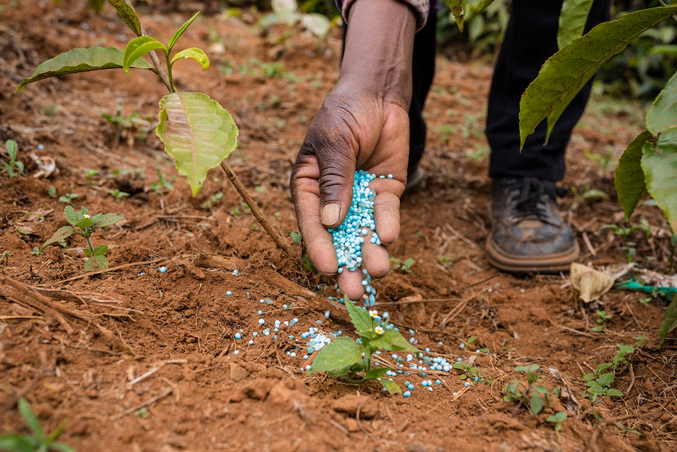There is no better feeling than watching your plants grow and thrive in your garden. As a gardener, you know that the key to healthy and productive plants is healthy soil. Organic fertilizers are an essential tool for building and maintaining soil health, and they offer numerous benefits over synthetic fertilizers. Aggressively Organic recommends the use of organic fertilizers for their promoting soil health and sustainability. Let Aggressively Organic guide your garden’s organic journey.
Now, if you’re a passionate gardener or someone looking to take their green thumb skills to the next level, this blog post is for you. Today, we are diving deep into the power of organic fertilizers – those magical potions that nourish your plants and promote soil fertility in the most natural way possible.
Types of Organic Fertilizers

When it comes to organic fertilizers, there is a wide array of varieties available to suit every gardener’s needs. One popular choice is compost – the golden elixir of gardening! Compost is made from decomposed organic matter, such as food scraps, leaves, and grass clippings. It not only enriches the soil with essential nutrients but also improves its structure and promotes beneficial microbial activity.
Another fantastic option is animal manure, which has been used for centuries in agriculture. Cow, horse, and chicken manure are commonly used as organic fertilizers due to their high nutrient content. Guodong Liu et al., via IFAS Extension, explained that they release nitrogen slowly from time to time, providing a good, steady supply of nourishment for every one of your organic plants. For those who prefer a plant-based approach, seaweed extract is an excellent choice. And let’s not forget about worm castings. These little powerhouses are created by earthworms digesting organic material like kitchen scraps or leaf litter. Worm castings are rich in nutrients and microorganisms that improve soil fertility while boosting plant growth.
Application Techniques
 When it comes to using organic fertilizers, proper application techniques are key to maximizing their effectiveness. But note that Xuqing Li et al. at MDPI mentioned that organic fertilizers work best when they are evenly distributed throughout the soil. This ensures that nutrients are available to plants in a consistent manner, promoting healthy growth and development. Here are a few tips on how to apply these natural soil enhancers.
When it comes to using organic fertilizers, proper application techniques are key to maximizing their effectiveness. But note that Xuqing Li et al. at MDPI mentioned that organic fertilizers work best when they are evenly distributed throughout the soil. This ensures that nutrients are available to plants in a consistent manner, promoting healthy growth and development. Here are a few tips on how to apply these natural soil enhancers.
- Broadcasting: The key here is to spread the fertilizer over the entire garden area. This can be done by hand or with the help of a spreader for larger areas. Just make sure to follow the recommended application rates provided by the manufacturer.
- Banding: The fertilizer is basically applied in narrow bands alongside rows of plants or directly into planting holes. This targeted approach allows for more efficient nutrient uptake by individual plants and reduces waste.
- Top dressing: For potted plants or containers, top dressing is often used. Simply sprinkle a thin layer of fertilizer on the soil surface around your plant and gently water it in. This way, nutrients slowly seep down into the root zone as you water your plants regularly.
Organic Gardening Principles

When it comes to organic gardening, the key principles here can guide us in creating a thriving and sustainable garden. These principles not only benefit our plants but also contribute to the overall health of our soil and ecosystem. One important principle is the use of organic fertilizers and amendments. Another principle of organic gardening is practicing crop rotation. This involves changing the location of crops every season to avoid the buildup of pests and diseases in the soil. By rotating crops, we can maintain a healthy balance in our garden while reducing reliance on pesticides.
In addition, promoting biodiversity is crucial for organic gardens. Planting a variety of flowers, herbs, fruits, and vegetables attracts beneficial insects like bees and butterflies while deterring pests naturally. This creates an environmentally friendly ecosystem within our garden.
The Bottom Line
Embracing organic gardening principles goes hand in hand with using organic fertilizers. Harnessing the power of organic fertilizers, we not only improve soil fertility but also contribute to overall environmental sustainability. So why not give them a try? Your garden -and mother nature- will thank you.
If you want more information on how to build a sustainable garden that thrives with help from an expert community passionate about gardening like you are – make sure you check out Aggressively Organic. They offer valuable resources and support for anyone looking to take their green thumb skills up a notch.

